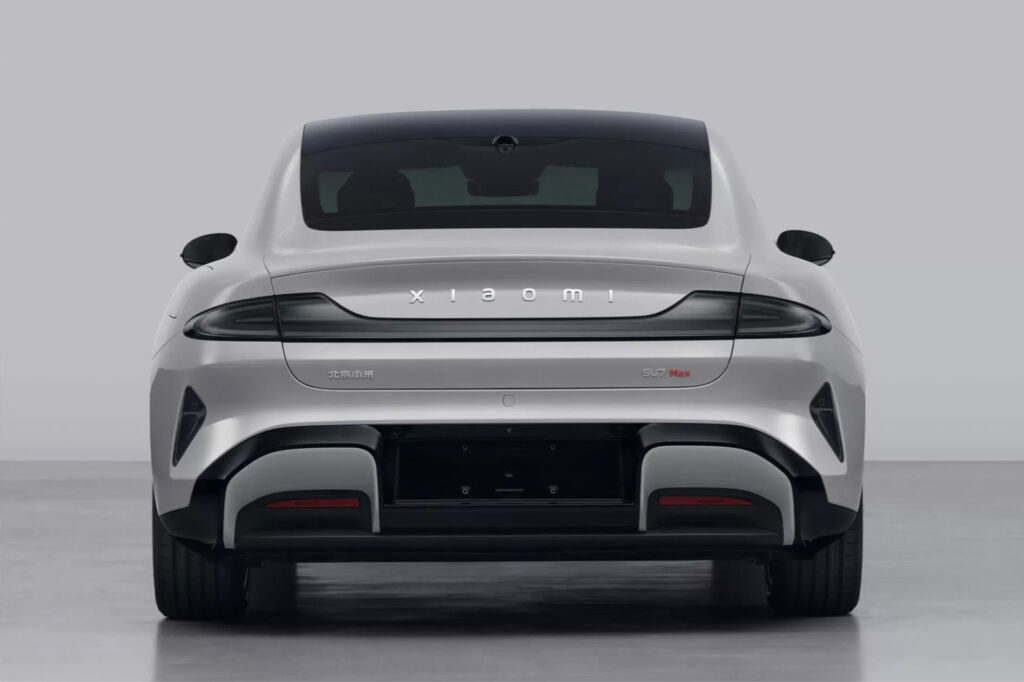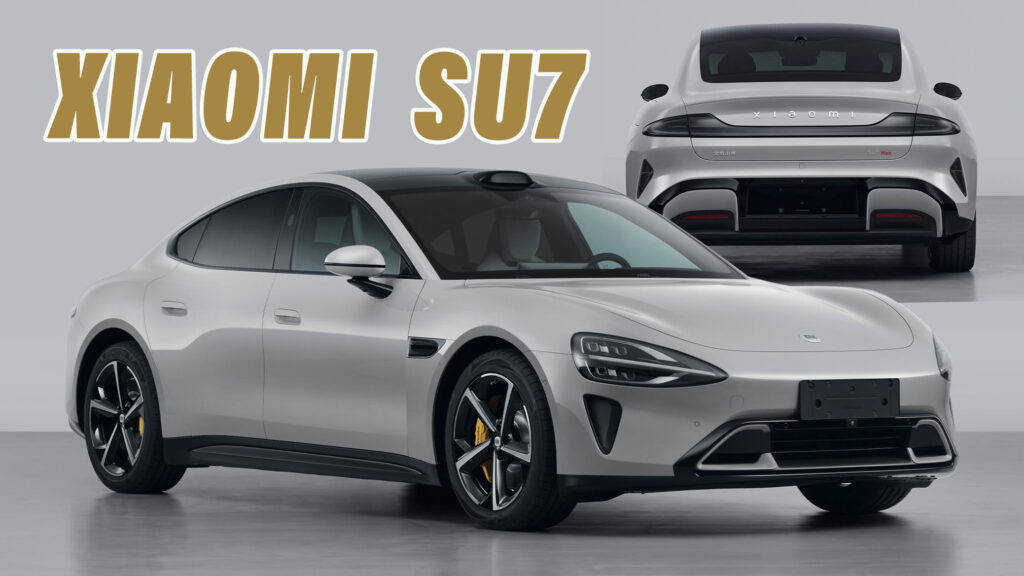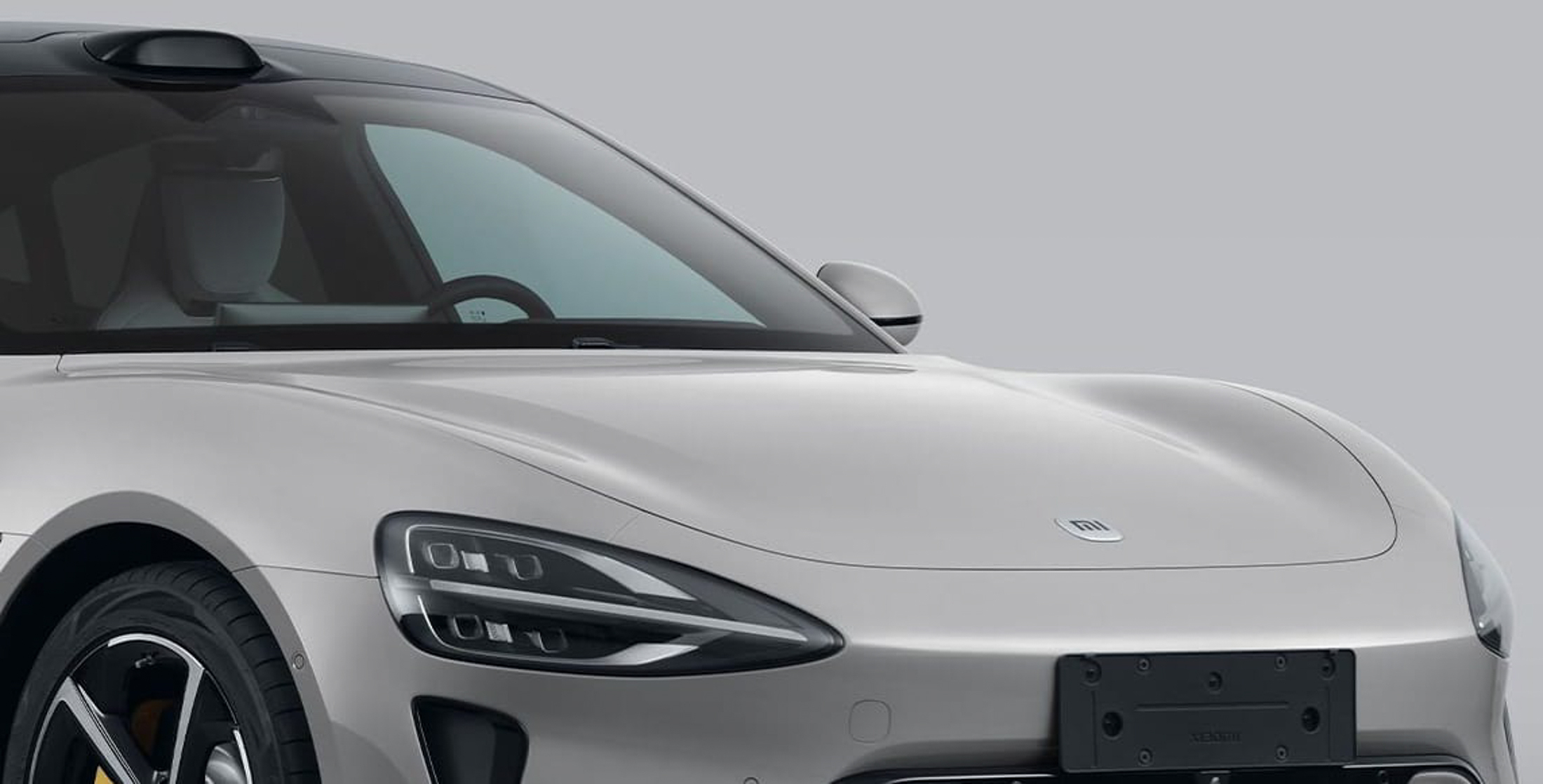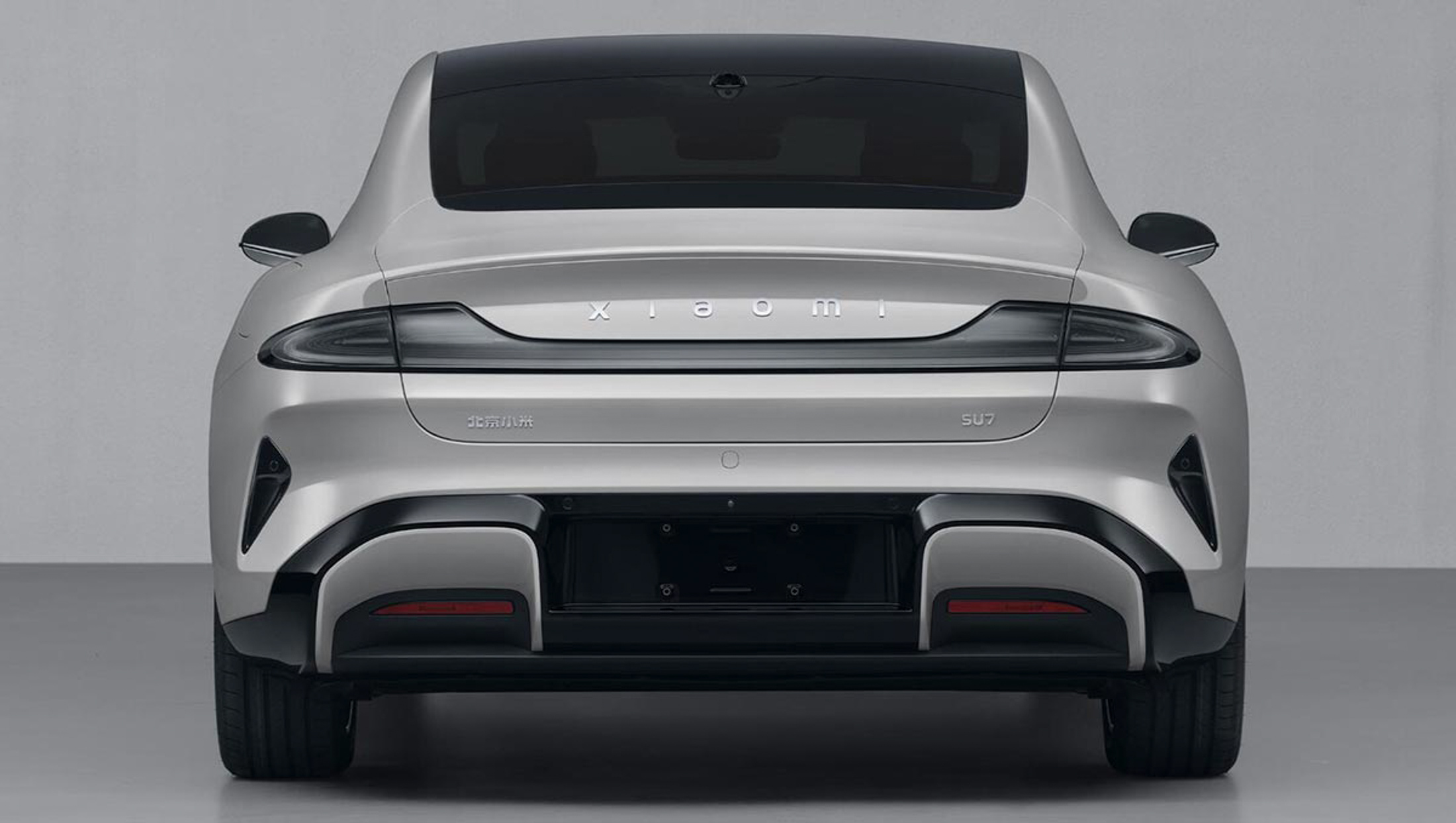We’re still in the dark about Apple’s long-awaited iCar, but over in China, a new EV from a different tech giant has just stepped out of the shadows. It’s the SU7 from Beijing Xiaomi, the newly formed automotive arm of smartphone-maker Xiaomi, and it’s almost ready to start stealing sales from the Tesla Model 3.
Known previously by its MS11 codename, the compact EV will be built under contract by BAIC (Beijing Automotive Industry Holding Co Ltd) and hasn’t officially been unveiled. But like every car destined for the Chinese market, the SU7 has been outed by China’s Ministry of Industry and Information Technology (MIIT), which has published a selection of images and a smattering of technical data.
We’d already seen the SU7’s McLaren-esque nose courtesy of some very grainy leaked images that hit the web earlier this year, but these (mostly) sharper pictures reveal a handsome sedan that seems to owe a debt of gratitude to the Porsche Taycan design team. It has a low nose with subtly peaked front fenders, flush door handles, a pinched waist, and muscular rear arches.
Related: Xiaomi’s EV Could Also Be Offered With A 1.5-Liter Range-Extender

The MIIT data sheet doesn’t reveal everything about Xiaomi’s debut EV, but it does tell us that it has a 3,000 mm (118.11 inches) wheelbase, which matches the Hyundai Ioniq 5’s and is way bigger than the 2,875 mm (113.2 inches) of metal that separates the Tesla Model 3’s front and rear axles. Buyers get the choice of 19- or 20-inch wheels and can also order a car with a Lidar sensor located behind the windshield to provide advanced driver-assist features.
Three trim levels – SU7, SU7 Pro, and SU7 Max – will be on the menu when sales start later this year, with some versions getting an active rear spoiler. The base powertrain features a single 295 hp (299 PS / 220 kW) electric motor that drives the rear wheels only and tops out at 130 mph (210 kmh), while an optional AWD setup appears to serve up a massive 664 hp (673 PS / 495 kW) by deploying two motors and can hit 165 mph (265 kmh). An earlier report suggested that the SU7 would also be available with a 1.5-liter range-extender engine, but there’s nothing in the MIIT drop to confirm that.
Of course, coming from a smartphone firm, the SU7 ought to provide the seamless integration of phone and car that we all crave but don’t get. Car News China reports that the EV will run Xiaomi’s HyperOS, an operating system developed in-house that can power smartphones and smart cars.












